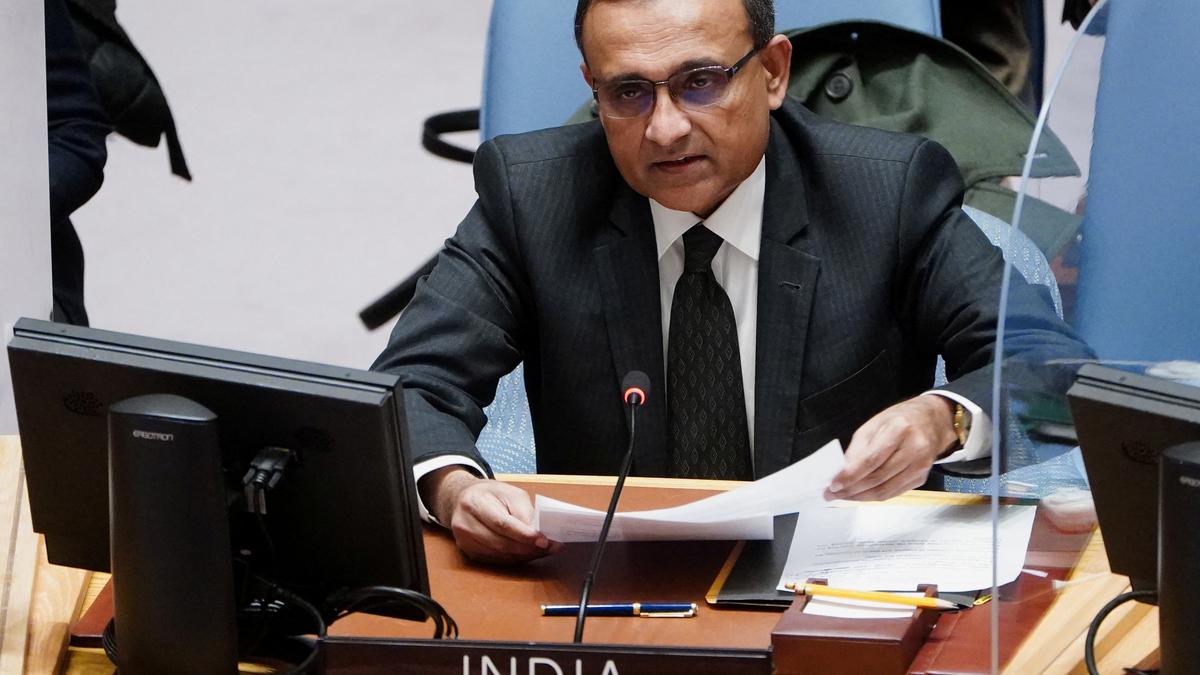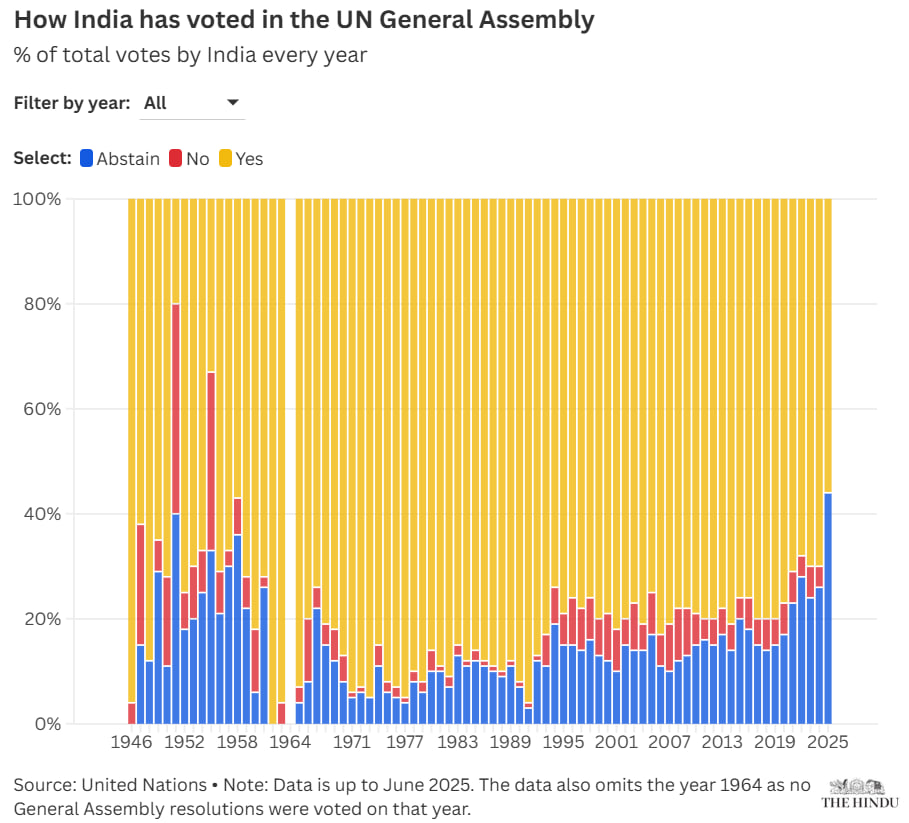



India's UN voting strategy has shifted, with abstentions hitting a record 44% in 2025 and 'yes' votes falling to 56%, the lowest since 1955. Former diplomats define this to global polarisation and complicated resolutions. Abstentions allow India to take an independent stance. For UPSC GS Paper II

Copyright infringement not intended
Picture Courtesy: THE HINDU
India's diplomatic approach at the United Nations is undergoing a significant transformation, marked by a record-high number of times it chooses to abstain from voting on resolutions.
Every Member Gets One Vote => UNSC has 15 members in total (5 Permanent +10 temporary), each casts one vote.
Two Types of Decisions, Different Rules
In 2025, India's annual percentage of abstentions reached 44%, which is the highest it has ever been in its history at the U.N. At the same time, its 'yes' votes dropped to 56%, the lowest since 1955.
|
Period |
'Yes' Votes Range |
Abstentions Range |
|
Post-Independence Volatility (1946-1969) |
20% to 100% |
0% to 40% |
|
Stabilisation Phase (1970-1994) |
74% to 96% |
8% to 19% |
|
Stable Multilateralism (1995-2019) |
75% to 83% |
10% to 17% |
|
Current Shift (Post-2019) |
Significantly Lower |
Significantly Higher |
 Why is India choosing to abstain?
Why is India choosing to abstain?
A World Divided => Fragmented global stage, with major powers like the US, China, and Russia often disagreeing.
Complex Resolutions => UN resolutions are very complicated, packed with many different clauses.
Standing Firm on Sovereignty => India views abstentions as an indicator of its independent diplomatic judgment.
India as a Growing Global Power => For rising middle powers like India, abstention serves as a valuable tool to navigate difficult issues and maintain strategic flexibility in a world where many powerful nations exist.
Strengthening Strategic Autonomy => India is adapting its traditional non-aligned heritage to fit today's complex global politics. For example, India has abstained on resolutions concerning the Russia-Ukraine conflict, human rights situations in Myanmar, and issues related to Israel-Palestine disputes.
|
Case Study Russia-Ukraine Conflict => When many Western nations condemned Russia's actions in Ukraine at the UN, India abstained from votes directly criticizing Russia.
Myanmar: India has abstained on UN resolutions concerning the human rights situation in Myanmar following the military coup.
Israel-Palestine => India's voting record on Israel-Palestine has historically supported the Palestinian cause.
|
A Tricky Diplomatic Balance => Allows India to avoid taking definitive sides on highly contentious issues, thereby maintaining good relations with a wide range of international partners.
Impact on Global Image => Critics argue that when India frequently abstains on issues like human rights or humanitarian crises, it could lead to a decline in India's moral leadership.
United Nations Security Council (UNSC) Aspirations => India's repeated abstentions on high-profile issues could potentially weaken its case for a permanent seat, as it might be seen as less willing to take definitive stands on global responsibilities. However, supporters argue that India's strategic autonomy makes it a more reliable and independent voice for the Council.
India's strategy of strategic abstention is likely to continue as it allows India to pursue its interests while engaging with all major powers, without being aligned by rigid alliances. India sees its unique position as an asset, which allows it to act as a bridge-builder and a voice for the Global South.
|
FAQ What is the trend in India's voting pattern at the UN? India's share of abstentions reached an all-time high of 44% in 2025, while "yes" votes declined to 56%, the lowest since 1955. Why are UN resolutions becoming harder for India to vote on? Resolutions now often include multiple, complex provisions, making it difficult for India to fully support or oppose them. How does abstention benefit India? Abstention provides India with the flexibility to express its stance without aligning with any major power bloc, while signaling concerns or strategic interests. |
Must Read Articles:
New UN Security Council Members
Source: THE HINDU
|
PRACTICE QUESTION Q. Discuss the potential advantages and disadvantages of India's abstention strategy in safeguarding its national interests on the international stage. 150 words |





© 2026 iasgyan. All right reserved